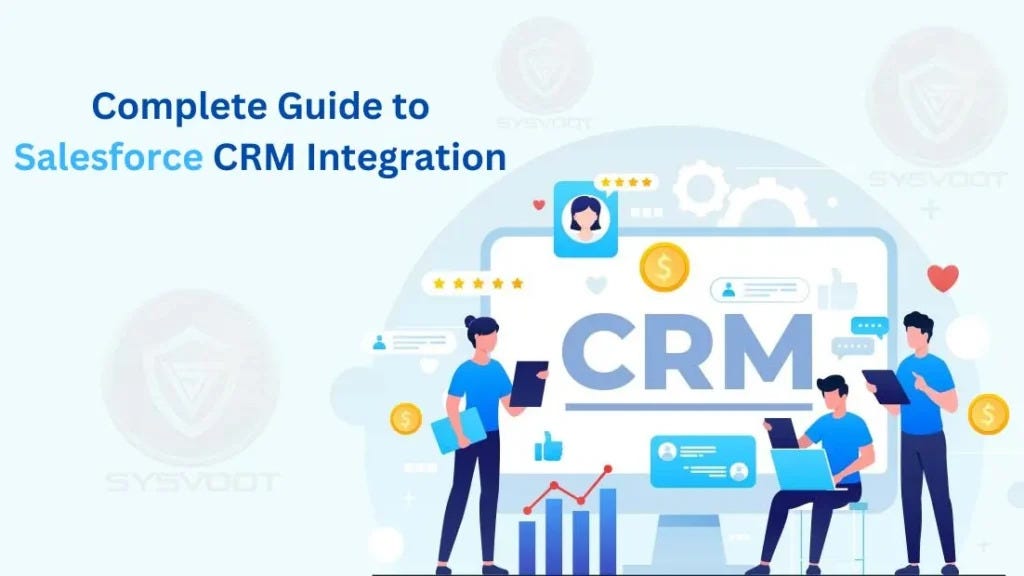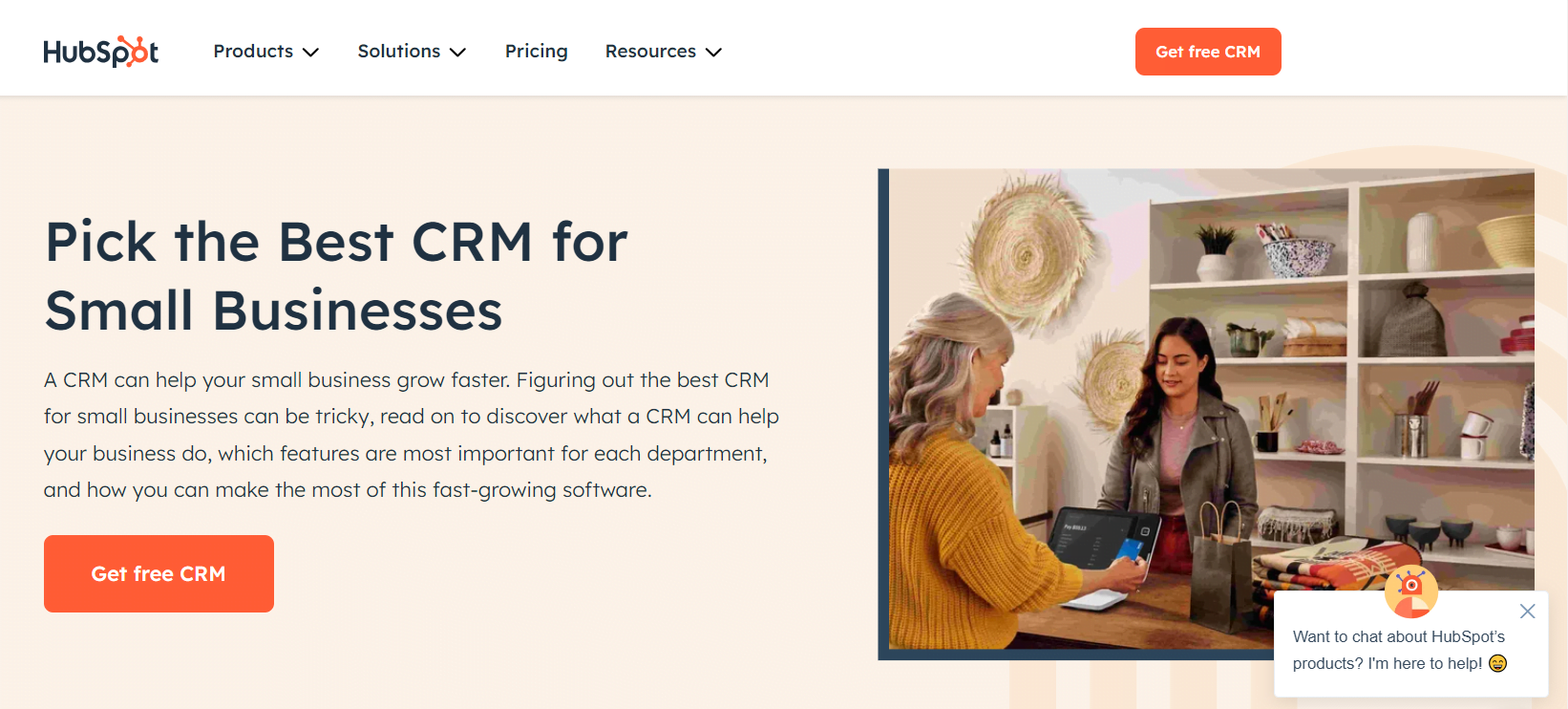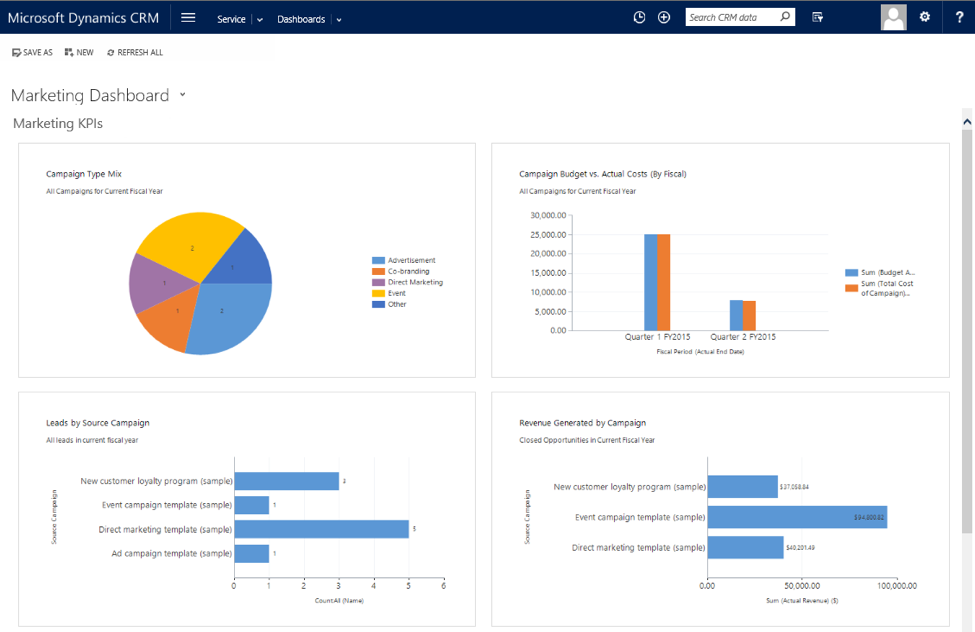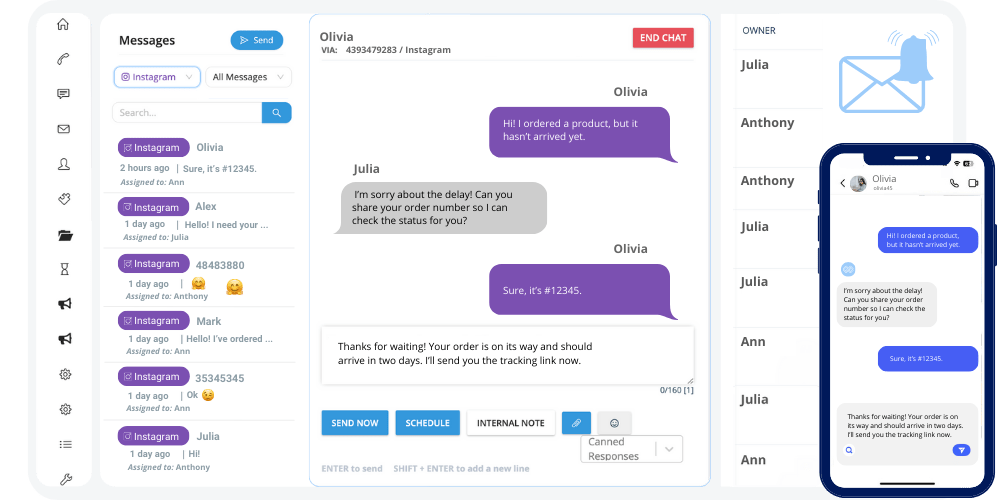The Ultimate CRM Marketing Integration Guide: Supercharge Your Growth

Unlocking Growth: The Power of CRM Marketing Integration
In today’s hyper-competitive business landscape, simply having a great product or service isn’t enough. You need to understand your customers, anticipate their needs, and engage with them in a personalized and relevant way. This is where the magic of CRM marketing integration comes into play. It’s not just about using a CRM (Customer Relationship Management) system; it’s about seamlessly connecting your CRM with your marketing tools to create a unified, data-driven powerhouse. This guide will walk you through everything you need to know to successfully integrate your CRM and marketing efforts, transforming your business and driving significant growth.
Think of it like this: Your CRM is the brain, storing all the critical information about your customers. Your marketing tools are the limbs, executing campaigns and reaching out to the world. Integration is the nervous system, connecting the brain to the limbs, allowing for coordinated action and intelligent responses. Without this connection, you’re operating in silos, missing opportunities, and potentially annoying your customers with irrelevant messaging. Let’s dive in and explore how to build this powerful nervous system.
What is CRM Marketing Integration?
At its core, CRM marketing integration is the process of connecting your CRM system with your marketing automation platforms, email marketing tools, social media management systems, and other marketing technologies. This connection allows data to flow freely between these systems, providing a 360-degree view of your customers. It’s about breaking down the walls between sales and marketing, creating a unified view of the customer journey, and enabling personalized experiences that drive engagement and conversions.
Imagine a world where your sales team knows exactly what marketing content a lead has interacted with, and your marketing team knows which leads are most likely to convert based on their sales interactions. That’s the power of CRM marketing integration. It allows you to:
- Personalize Customer Experiences: Tailor your messaging and offers based on customer data, preferences, and behavior.
- Improve Lead Qualification: Identify high-quality leads and prioritize your sales efforts.
- Increase Sales Efficiency: Empower your sales team with the information they need to close deals faster.
- Boost Marketing ROI: Track the impact of your marketing campaigns on sales and optimize your spending.
- Enhance Customer Retention: Provide consistent and relevant interactions throughout the customer lifecycle.
Why is CRM Marketing Integration Important?
In a world saturated with marketing messages, capturing and keeping your customers’ attention is a challenge. Customers expect personalized experiences, and they’re more likely to engage with brands that understand their needs. CRM marketing integration is the key to delivering these experiences. Here’s why it’s so crucial:
- Improved Customer Understanding: A unified view of customer data provides a deeper understanding of their behavior, preferences, and needs.
- Enhanced Personalization: Tailor your messaging and offers to resonate with each customer, increasing engagement and conversions.
- Streamlined Workflows: Automate tasks and processes, freeing up your team to focus on more strategic initiatives.
- Data-Driven Decision Making: Track the performance of your campaigns and make informed decisions based on real-time data.
- Increased Revenue: Drive more sales and improve customer lifetime value by providing personalized experiences.
Key Benefits of CRM Marketing Integration
The advantages of CRM marketing integration are numerous and far-reaching. By connecting your CRM and marketing systems, you can unlock a wealth of benefits that will transform your business. Here are some of the most significant:
- Improved Lead Management: Automatically capture lead data from marketing campaigns and seamlessly transfer it to your CRM. This eliminates manual data entry, reduces errors, and ensures your sales team has the information they need to follow up effectively.
- Enhanced Lead Scoring: Use customer behavior data from your marketing campaigns to score leads and prioritize your sales efforts. This ensures your sales team focuses on the leads most likely to convert, maximizing their efficiency and closing more deals.
- Personalized Email Marketing: Segment your audience based on CRM data and send targeted email campaigns that resonate with each customer. This increases engagement, click-through rates, and conversions.
- Automated Workflows: Automate repetitive tasks, such as lead nurturing, onboarding, and follow-up emails. This frees up your team to focus on more strategic initiatives and reduces the risk of human error.
- Improved Sales and Marketing Alignment: Break down the silos between sales and marketing and create a unified view of the customer journey. This ensures everyone is working towards the same goals and provides a more seamless customer experience.
- Increased Marketing ROI: Track the impact of your marketing campaigns on sales and optimize your spending. This ensures you’re getting the most out of your marketing budget and driving the best results.
- Better Customer Segmentation: Segment your audience based on a wider range of criteria, including demographics, behavior, and purchase history. This allows you to create more targeted and effective marketing campaigns.
- More Accurate Reporting: Gain a holistic view of your sales and marketing performance with integrated reporting and analytics. This provides valuable insights into what’s working and what’s not, enabling you to make data-driven decisions.
Choosing the Right CRM and Marketing Tools
The first step in CRM marketing integration is selecting the right tools. The best CRM and marketing platforms for you will depend on your specific needs, budget, and business goals. Consider the following factors when making your choices:
- Scalability: Choose tools that can grow with your business and handle increasing data volumes and user needs.
- Ease of Use: Opt for user-friendly platforms that your team can easily adopt and use.
- Integration Capabilities: Ensure the tools you choose can seamlessly integrate with each other and with other systems you use.
- Features: Consider the features you need, such as lead scoring, email marketing, marketing automation, and reporting.
- Budget: Determine your budget and choose tools that offer the features you need at a price you can afford.
- Vendor Reputation and Support: Research the vendor’s reputation and read reviews to ensure you’re choosing a reliable and supportive partner.
Here are some popular CRM and marketing tools that are often integrated:
- CRMs: Salesforce, HubSpot CRM, Zoho CRM, Microsoft Dynamics 365, Pipedrive
- Marketing Automation Platforms: HubSpot Marketing Hub, Marketo, Pardot, ActiveCampaign, Mailchimp
- Email Marketing Tools: Mailchimp, Constant Contact, ConvertKit, AWeber, GetResponse
- Social Media Management Tools: Hootsuite, Buffer, Sprout Social, CoSchedule
It’s important to note that many of these tools offer native integrations with each other, making the integration process smoother and easier. However, you may need to use third-party integration platforms or custom integrations for more complex setups.
Step-by-Step Guide to CRM Marketing Integration
Integrating your CRM and marketing tools can seem daunting, but with a structured approach, you can make the process smooth and successful. Here’s a step-by-step guide to help you get started:
- Define Your Goals and Objectives: Before you start, clearly define your goals and objectives for CRM marketing integration. What do you want to achieve? Are you trying to improve lead generation, increase sales, or enhance customer retention? Having clear goals will guide your integration strategy and help you measure your success.
- Assess Your Current Systems: Take stock of your existing CRM and marketing tools. Identify their strengths and weaknesses, and determine which integrations will be most beneficial.
- Choose Your Integration Method: There are several ways to integrate your CRM and marketing tools:
- Native Integrations: Many tools offer pre-built integrations that are easy to set up and use.
- Third-Party Integration Platforms: Platforms like Zapier, Integromat (now Make), and Workato connect different apps and automate workflows.
- Custom Integrations: For more complex needs, you may need to develop custom integrations using APIs (Application Programming Interfaces).
Choose the method that best suits your technical skills and budget.
- Plan Your Data Mapping: Determine which data fields you want to sync between your CRM and marketing tools. This includes lead information, contact details, customer behavior data, and sales data. Carefully plan how the data will be mapped to ensure accuracy and consistency.
- Set Up the Integration: Follow the instructions provided by your CRM and marketing tools or the integration platform you’ve chosen. This typically involves connecting your accounts, mapping data fields, and configuring workflows.
- Test the Integration: Thoroughly test your integration to ensure data is syncing correctly and that your workflows are working as expected. Send test leads through your system and verify that the data is being captured and processed correctly.
- Train Your Team: Provide training to your sales and marketing teams on how to use the integrated systems. Ensure they understand how to leverage the data and workflows to improve their performance.
- Monitor and Optimize: Continuously monitor your integration and make adjustments as needed. Track your key performance indicators (KPIs) to measure the success of your integration and identify areas for improvement.
Best Practices for Successful CRM Marketing Integration
Successfully integrating your CRM and marketing tools requires more than just connecting the systems. Here are some best practices to ensure your integration is a success:
- Start Small: Don’t try to integrate everything at once. Start with a few key integrations and gradually expand as you gain experience and understanding.
- Prioritize Data Quality: Ensure the data in your CRM and marketing tools is accurate, up-to-date, and consistent. Clean up your data before you integrate to avoid propagating errors.
- Focus on Automation: Automate as many tasks as possible to streamline your workflows and save time.
- Personalize Your Messaging: Use the data from your CRM to personalize your marketing messages and offers.
- Track Your Results: Monitor your key performance indicators (KPIs) to measure the success of your integration and identify areas for improvement.
- Provide Regular Training: Ensure your team is well-trained on how to use the integrated systems and leverage the data to improve their performance.
- Regularly Review and Refine: CRM marketing integration is not a one-time project. Regularly review your integration, analyze your results, and make adjustments as needed to optimize your performance.
- Establish Clear Communication: Foster open communication between your sales and marketing teams. This will help ensure everyone is on the same page and working towards the same goals.
- Document Everything: Keep detailed documentation of your integration setup, data mapping, and workflows. This will be invaluable for troubleshooting and making future changes.
- Choose the Right Partner: If you need help with your integration, consider working with a qualified consultant or agency. They can provide expert guidance and help you navigate the complexities of CRM marketing integration.
Common Challenges and How to Overcome Them
While CRM marketing integration offers significant benefits, it’s not without its challenges. Here are some common obstacles and how to overcome them:
- Data Silos: Data silos can prevent your sales and marketing teams from accessing the same information. To overcome this, ensure your CRM and marketing tools are integrated and that data flows seamlessly between them.
- Data Quality Issues: Inaccurate or incomplete data can undermine your marketing efforts. Regularly clean and update your data to ensure its accuracy. Implement data validation rules to prevent bad data from entering your systems.
- Lack of Integration Expertise: Integrating CRM and marketing tools can be technically complex. If you lack the in-house expertise, consider working with a qualified consultant or agency.
- Resistance to Change: Your team may resist adopting new tools or workflows. Provide adequate training and support to help them embrace the changes. Highlight the benefits of the integration to motivate them.
- Complexity of the Integration Process: The integration process can be time-consuming and challenging, especially for complex setups. Start small, break down the process into manageable steps, and test thoroughly. Consider using integration platforms to simplify the process.
- Budget Constraints: CRM and marketing tools can be expensive. Plan your budget carefully and choose tools that fit your needs and your budget. Consider starting with free or low-cost options and scaling up as your business grows.
- Lack of Alignment Between Sales and Marketing: Without alignment, the integration will not be effective. Foster open communication and collaboration between your sales and marketing teams. Establish shared goals and metrics.
- Security Concerns: Integrating systems can raise security concerns. Implement strong security measures, such as encryption and access controls, to protect your data. Choose reputable vendors with strong security practices.
Measuring the Success of Your CRM Marketing Integration
Once you’ve integrated your CRM and marketing tools, it’s crucial to measure the success of your efforts. This will help you identify what’s working, what’s not, and where you can make improvements. Here are some key metrics to track:
- Lead Generation: Track the number of leads generated, the cost per lead, and the conversion rate of leads to opportunities.
- Sales Conversion Rates: Measure the percentage of opportunities that convert to closed deals.
- Sales Cycle Length: Track the average time it takes to close a deal.
- Customer Acquisition Cost (CAC): Calculate the cost of acquiring a new customer.
- Customer Lifetime Value (CLTV): Estimate the total revenue a customer will generate over their lifetime.
- Marketing ROI: Measure the return on investment of your marketing campaigns.
- Website Traffic and Engagement: Monitor website traffic, bounce rates, and time on page to gauge the effectiveness of your content and marketing efforts.
- Email Marketing Metrics: Track open rates, click-through rates, and conversion rates of your email campaigns.
- Customer Satisfaction: Measure customer satisfaction through surveys and feedback forms.
- Sales Team Productivity: Assess the efficiency of your sales team, including the number of calls made, demos conducted, and deals closed.
By tracking these metrics, you can gain valuable insights into the effectiveness of your CRM marketing integration and make data-driven decisions to improve your results.
The Future of CRM Marketing Integration
The landscape of CRM marketing integration is constantly evolving, with new technologies and trends emerging regularly. Here are some key trends to watch:
- Artificial Intelligence (AI): AI is being used to automate tasks, personalize customer experiences, and predict customer behavior. AI-powered CRM and marketing tools can analyze vast amounts of data to provide valuable insights and optimize your campaigns.
- Personalization: Customers expect personalized experiences, and AI and advanced segmentation techniques are making it easier to deliver them.
- Omnichannel Marketing: Customers interact with brands across multiple channels, and CRM marketing integration is essential for providing a seamless omnichannel experience.
- Mobile Marketing: With the increasing use of mobile devices, mobile marketing is becoming increasingly important. CRM marketing integration can help you deliver personalized mobile experiences and track customer behavior on mobile devices.
- Privacy and Data Security: As data privacy regulations become stricter, it’s crucial to prioritize data security and compliance. Choose CRM and marketing tools that comply with relevant regulations, such as GDPR and CCPA.
- Integration with Emerging Technologies: Expect further integration with emerging technologies like voice assistants, augmented reality, and virtual reality to create more immersive and engaging customer experiences.
Staying ahead of these trends will be critical for businesses looking to maximize the benefits of CRM marketing integration and create exceptional customer experiences.
Conclusion: Embrace the Power of Integration
CRM marketing integration is no longer a luxury; it’s a necessity for businesses that want to thrive in today’s competitive landscape. By connecting your CRM and marketing tools, you can gain a deeper understanding of your customers, personalize your messaging, streamline your workflows, and drive significant growth. This guide has provided you with the knowledge and insights you need to get started. So, take the first step, embrace the power of integration, and unlock the full potential of your business. Your customers, and your bottom line, will thank you.





